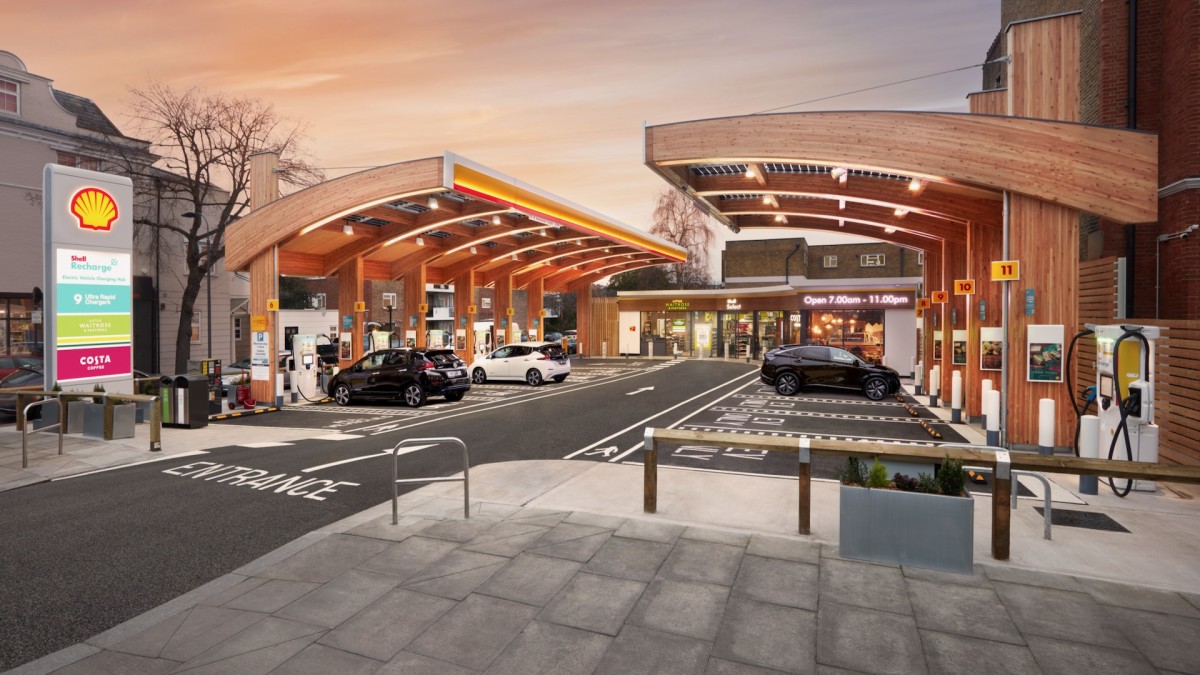New Thermal Fluid Is Key
Shell may be one of the world’s largest oil companies, but it also operates a global network of EV charging stations—and it’s researching ways to charge cars faster. According to Top Gear, Shell is working with the RML Group—a U.K. motorsports and engineering company whose other projects include a Ferrari 250 GT SWB restomod—on a way to get the time for a benchmark 10%-80% charge below 10 minutes.
The solution these two companies have come up with has less to do with the charging stations themselves and more to do with the thermal management systems of the EV battery packs they’re supplying with electricity. Shell reckons a different type of coolant can help keep temperatures down, allowing for faster charging speeds for longer durations. But it’s still at the proof-of-concept stage.
Seeking Efficiency Gains
Shell
Shell and RML have been testing a 34-kilowatt-hour battery pack with a special “gas-to-liquid” thermal fluid. Instead of being pumped through exterior cooling circuits, the fluid flows through spaces between the battery modules.
That battery pack is fairly small by current EV standards, but Shell envisions this battery-cooling tech as part of a “carefully designed lightweight and aerodynamic car” with efficiency of 6.2 miles per kWh. That’s much higher than current EVs, but if it can be achieved, it would mean more range from a given pack size. And Shell estimates that such a car could recover about 15 miles of range per minute of charging, so more frequent charging stops wouldn’t be a major inconvenience.
Faster charging and greater efficiency are important goals to strive for, as improving both would lessen the need for big battery packs, which add weight and cost to current EVs. But what Shell is describing here involves wholesale changes to the way vehicles are designed, so it won’t benefit drivers looking for a faster charge today.
Even Oil Companies Think EVs Are The Future
Shell
Shell isn’t abandoning its oil business or network of gas stations anytime soon, but the company has been investing in EV charging as a hedge against any future decline in oil demand. The company says it operates over 70,000 individual charging stations across global markets like China, Europe, and the U.S.
The oil giant bought curbside charging company Ubitricity in 2021, and says it now has 10,000 EV chargers installed in lamp posts in U.K. and European cities. In 2023, Shell also bought U.S.-based Volta, which offers free charging through an ad-supported model. Shell has said it hopes to reach 200,000 chargers globally by 2030.
The new battery coolant it’s testing gives Shell another potential angle for exploiting a rising EV market. In addition to fuel, Shell also sells lubricants and other fluids used by the automotive industry. Some of that business could also go away along with internal-combustion engines, but coolant could replace that revenue stream.